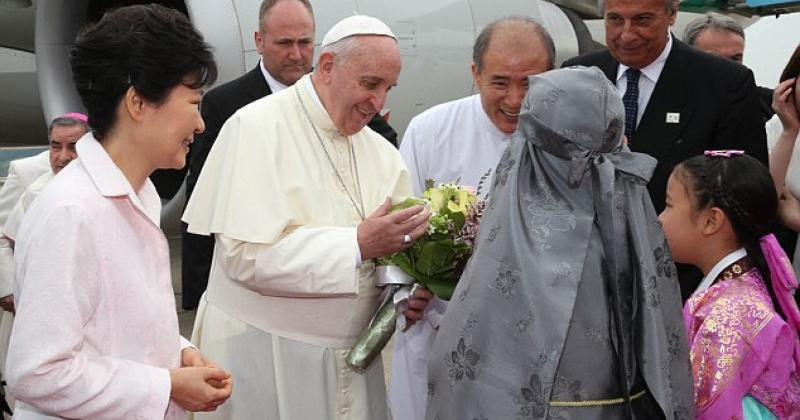“There are not two Koreas, there is one - divided Korea - and just like a family that suffers separation, we must pray for our brothers: "Lord help us achieve unity. That there may be no victory and no defeat, only one family”.”
These words which Francis pronounced off-the-cuff, in Italian, before thousands of young people from all over Asia gathered under the white tensile structure erected next to the sanctuary of Solmoe, were the most powerful words on Korean unity yet. He did this with his unique style and approach: he is a man of faith when he speaks but the few lines he dedicates to the problem of Korea’s division are also explosive from a geopolitical point of view.
Francis answered questions put to him by a young Korean girl, Marina, directly. Marina lamented Korea's division and talked about how she, along with so many other generations, are now used to considering North Koreans as enemies. “Marina asked a painful question about the division between the brothers and sisters of the two Koreas. Ther are two Koreas, no there is one Korea but it is a divided family and how can we help this family reconcile?” The Pope gave two suggestions, he gave “a piece of advice” and expressed “a hope.”
His piece of advice was: “first of all, to pray, pray for our brothers and sisters in the North and say to God: "Lord help us achieve unity. That there may be no victory and no defeat, only one family.” Francis then asked young people to pray in silence for Korean unity. After this he spoke about “hope”: “There is hope and it is beautiful. Korea is a family, you speak the same language,” Francis said. When Joseph’s brothers went into Egypt to buy something to eat, they went to buy food and they found a brother!” Francis said quoting an episode from the Book of Genesis. “They realised Joseph spoke the same language they did. Think of your brothers and sisters in the North, you speak the same language as them. And when people speak the same language, there is also human hope.”
Francis’ words were simple and in the same style as his morning homilies in St. Martha’s House. Their impact is far greater than that of a prepared text and present an evangelical take on the painful reality Koreans have been experiencing since the country’s division 69 years ago.
